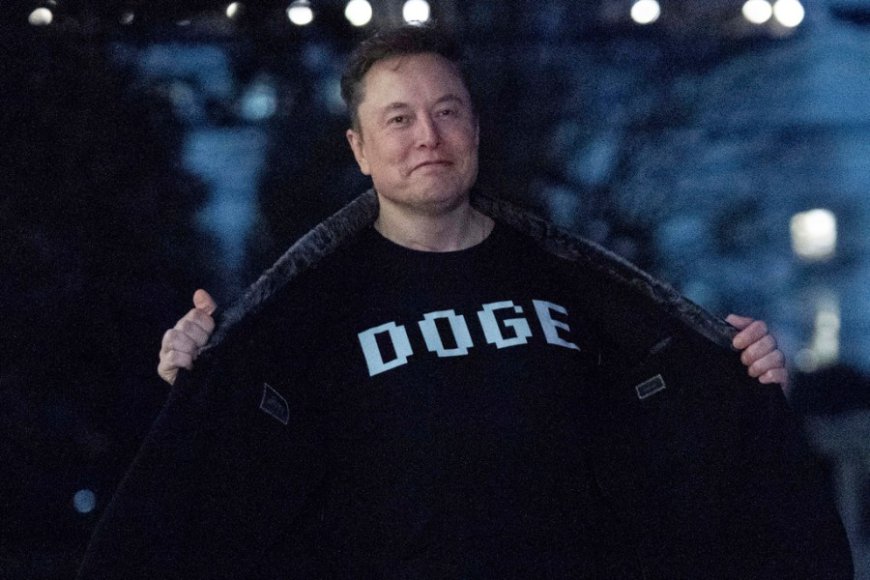Reports of DOGE’s demise are greatly exaggerated — it’s just getting started
The Department of Government Efficiency (DOGE) effort, which exposed wasteful and harmful spending, is now entering its next chapter, with the White House and Congress working to address the $160 billion in improper payments and $3 trillion in waste, fraud and abuse in the last 22 years.

“Ding-Dong! The DOGE is dead!” Democrats gleefully proclaimed this spring. However, House Republicans said, “Not so fast.”
Elon Musk’s departure from the White House had always been part of the plan. As a “Special Government Employee” he was never going to be a permanent fixture in government. But with his departure in May, many commentators are wondering aloud whether President Trump’s Department of Government Efficiency — and, with it, the prospect of meaningful spending cuts — is over as well.
But the report of DOGE’s demise are exaggerated.
In fact, its work is just getting started. DOGE is about more than simply identifying and eliminating wasteful and harmful spending. It is about identifying corruption, holding culprits accountable and changing the way the government thinks and operates when it comes to spending taxpayer dollars. And it must continue, or else all Americans will pay a heavy price.
Conservatives should take a moment to applaud the incredible, historic and transformational work accomplished through the DOGE effort so far. DOGE exposed previously hidden waste, fraud, abuse and possible corruption in a new and exciting way, showing the public what our government had really been up to.
The work of the DOGE team vaulted Washington excess onto center stage. Most Americans already knew D.C. bureaucrats were wasting taxpayer dollars, but seeing exactly what it was being wasted on unleashed a new nationwide demand that the harmful, reckless and insane spending be stopped immediately.
With Musk returning to his many business ventures, chapter one of DOGE finished with a flourish. Now, it’s Congress’s turn to take hold of the pen and write chapter two in permanent ink.
Last month, the White House sent Congress a “rescissions message” to cut nearly $10 billion in spending. Recission is a president’s way to suggest returning unspent funds back to taxpayers before the checks are cashed. The best part: This move can be approved by a simple majority in the U.S. Senate.
The House passed a package of recommended DOGE cuts, sending the savings plan to the Senate for final approval.
While rescission bills deal with what’s called “discretionary” spending, Trump's One, Big, Beautiful Bill Act, which was signed into law, contains several important cost-savings measures focused on the mandatory spending side, such as work requirements and eligibility checks for federal programs like Medicaid and food stamps. These necessary reforms will have a big impact on the federal deficit by getting able-bodied adults who can work back into the workforce while strengthening Medicaid for those who need it most.
President Trump’s DOGE effort has also elevated the priority Cabinet secretaries place on identifying and eliminating waste, fraud and abuse within the agencies they lead. This has spurred all federal agencies to take a closer look at their spending.
Moving forward, every agency must use their internal DOGE teams to go through their budgets line by line while carefully analyzing their organizational charts, coordinating with the White House and Congress to get their spending and personnel under control.
Then, to DOGE chapter three: accountability.
Identifying waste, fraud and abuse isn’t enough. Americans want accountability as well. According to the nonpartisan Government Accountability Office, the government is aware of more than $160 billion in improper payments last year alone — and the data only comes from a small subset of federal programs.
The government is aware it lost nearly $3 trillion to waste, fraud and abuse in the last 22 years — the real number is likely much larger. In chapter three of the DOGE saga, Attorney General Pam Bondi and the Department of Justice must publicly prosecute the fraud and corruption that DOGE uncovered, as well as any additional fraud against taxpayers.
Investigations and prosecutions take time, but the public’s patience is waning. How many billions of dollars went to lucrative jobs for connected Joe Biden supporters? Did anyone receive kickbacks for funneling millions of taxpayer dollars to left-wing groups? Taxpayers have a right to know. Real accountability means consequences for corruption. Voters are demanding justice, and the D.C. bureaucrats who committed fraud should fear the exposure and justice that is coming.
Congress likewise should look beyond the rescission packages to find even more opportunities to find savings, using must-pass legislative vehicles as needed to strong arm the left into passing new laws to tackle waste, fraud and abuse that cannot be addressed through reconciliation. Spending controlled by Congress is now up to $1.6 trillion per year, up by $300 billion since 2019. Even a return to pre-pandemic spending levels would be an unprecedented reduction in the cost of government.
Despite the departure of Musk, the president’s DOGE effort will be one of the rare cases in which the sequel is better than the original. If you liked chapter one, then you are going to love the DOGE trilogy.
Stewart Whitson is a former FBI Supervisory Special Agent and currently senior director of federal affairs for the Foundation for Government Accountability.
What's Your Reaction?






















